Dreams have been a topic of fascination and mystery for centuries, captivating the human imagination with their enigmatic nature. From ordinary subconscious narratives to vivid and prophetic experiences, dreams have been an integral part of the human experience. Can these seemingly random manifestations of the mind hold any glimpse into the future? Is there a deeper connection between dreams and premonitions? In this comprehensive exploration, we delve into the complexities of dreams and premonitions, unraveling their significance, scientific explanations, and the intriguing stories that surround them. Prepare to embark on a journey that will challenge conventional wisdom and spark your imagination as we uncover the link between dreams and future events.
Understanding Dreams
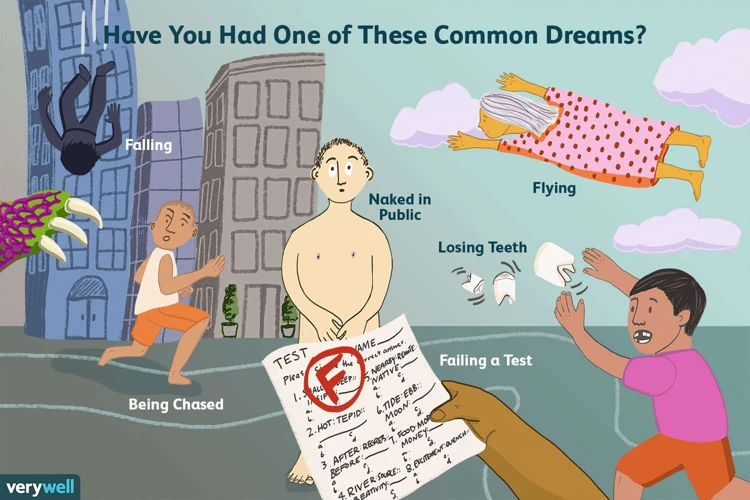
Dreams are fascinating windows into the subconscious mind, offering a glimpse into a realm where reality and fantasy intertwine. These nocturnal visions serve a deeper purpose, carrying hidden meanings and insights that can unlock the mysteries of our innermost thoughts and emotions. The purpose of dreams is a subject that has intrigued philosophers, psychologists, and spiritualists alike. Some theories posit that dreams serve as a processing mechanism, helping us make sense of our daily experiences and emotions. Others believe that dreams provide a gateway to our unconscious desires and fears. Types of dreams encompass a vast spectrum, ranging from mundane and symbolic to vivid and lucid experiences. Dreams can be emotional, bringing forth feelings of joy, fear, or sadness. They can also be recurring, guiding us towards unresolved conflicts or unexplored facets of our psyche. To better understand dreams, it is essential to explore their symbolism, colors, and the role they play in fostering creativity and self-exploration. Even nightmares, though unsettling, can offer valuable insights and opportunities for personal growth, as they often reflect our deepest fears and anxieties, urging us to confront and overcome them. So, let us embark on this journey of unraveling the mysteries of dreams, seeking wisdom and inspiration in the realm of the subconscious.
1. The Purpose of Dreams
The purpose of dreams is a topic that has fascinated researchers, philosophers, and psychologists for centuries. Dreams serve as a gateway to the subconscious mind, allowing us to explore elements of our psyche that may not be readily accessible during waking hours. One theory regarding the purpose of dreams is that they function as a mechanism for processing and consolidating information. When we sleep, our brains continue to organize and categorize the events, emotions, and experiences we encounter throughout the day. This processing aids in memory formation and can contribute to problem-solving and creative thinking. Dreams also provide a platform for emotional expression and release. They can serve as a safe space to confront and process difficult emotions, allowing us to work through unresolved issues and gain a sense of closure. Dreams have been linked to the enhancement of human creativity. During sleep, the brain can make connections and form associations that may not be immediately apparent to our conscious minds. This creative problem-solving aspect of dreams can help individuals generate new ideas and perspectives. Exploring the purpose of dreams offers a profound understanding of the depth and complexity of the human mind and its capacity for self-reflection and growth. So, whether you are seeking to unravel the mysteries of your dreams or searching for inspiration in your waking life, recognizing the purpose behind these nightly visions can provide valuable insights into the workings of your inner world. To further unlock the secrets of dreams, it is crucial to delve into the realm of nightmares and their significance. Nightmares, though unsettling, can serve as powerful wake-up calls, urging us to confront our deepest fears and anxieties. By facing and overcoming these challenges, we can experience personal growth and transformation. If you want to dive deeper into the world of nightmares, you can explore the article on unveiling the secrets of nightmares.
2. Types of Dreams
Types of dreams encompass a vast spectrum of experiences, each offering unique insights into the workings of our subconscious mind. Recurring dreams are a common phenomenon, where certain themes or scenarios repeat themselves over time. These dreams often hold significant symbolism, highlighting unresolved issues or patterns in our lives that require attention. Nightmares, on the other hand, jolt us awake in a state of fear or distress. These intense and unsettling dreams can reflect underlying fears, traumas, or anxieties that need to be addressed. Exploring the symbolism and messages embedded within nightmares can provide valuable opportunities for personal growth and healing. Lucid dreams offer a heightened sense of awareness and control within the dream state. In these dreams, individuals are conscious that they are dreaming and can actively participate in shaping the dream narrative. Lucid dreaming can be a powerful tool for self-exploration, problem-solving, and even enhancing creativity. Prophetic dreams are perhaps the most intriguing and enigmatic of all. These dreams seem to foretell future events or provide glimpses into aspects of life yet to unfold. Whether it’s a premonition of a significant life event or a seemingly insignificant detail that later manifests, the prophetic nature of these dreams sparks profound wonder and curiosity. By understanding the different types of dreams and their significance, we can embark on a journey of self-discovery, tapping into the limitless depths of our subconscious and harnessing the immense potential they hold.
Premonitions and Their Significance
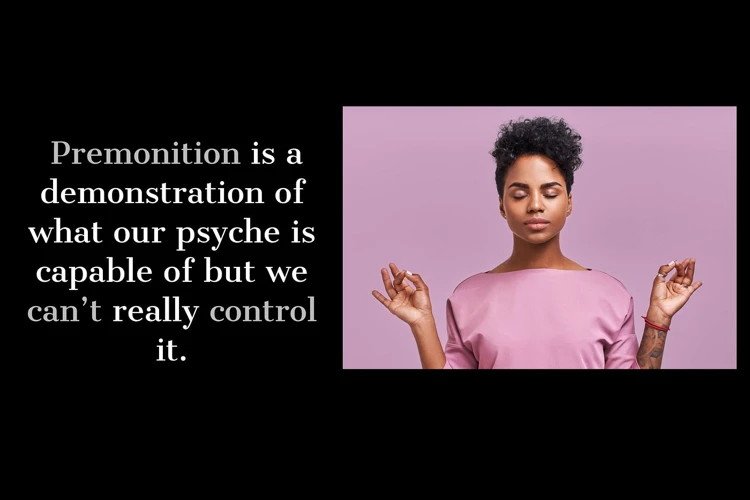
Premonitions, those eerie glimpses into the future that defy logical explanation, have long captivated human imagination and raised profound questions about the nature of time and intuition. Defined as a strong feeling or belief that something will happen before it actually does, premonitions have been reported throughout history, across various cultures and belief systems. Their significance lies in their potential ability to warn, guide, or prepare individuals for future events, both significant and mundane. The inexplicable nature of premonitions challenges conventional notions of cause and effect, suggesting the existence of hidden realms of knowledge or perception beyond our ordinary senses. While skeptics dismiss premonitions as mere coincidences or the product of subconscious cues, there are striking accounts of premonitions that have proven accurate, leaving us to ponder the mysteries of human consciousness and the possibilities of tapping into a deeper understanding of time and reality.
1. Definition of Premonitions
Premonitions, a phenomenon shrouded in intrigue, pique curiosity and ignite speculation about the nature of time and consciousness. Definition of premonitions refers to a sense or intuition about a future event before it occurs, often experienced through dreams, feelings, or visions. They transcend the boundaries of rationality and logic, offering a glimpse into an unseen reality. Premonitions can manifest in various forms, such as a nagging feeling of impending danger, a vivid dream hinting at future events, or an intuitive knowing without any logical explanation. While skeptics may dismiss premonitions as mere coincidences or imagination, those who have experienced them firsthand know the undeniable power and significance they carry. These glimpses into the future challenge our understanding of time and the limitations of human consciousness. Are premonitions a result of heightened intuition, a connection to a higher power, or a subconscious processing of subtle cues in our environment? The mystery surrounding premonitions invites us to explore the uncharted territories of the human mind and ponder the depths of our existence.
2. The Science Behind Premonitions
The science behind premonitions is a subject that has sparked curiosity and debate among scientists and skeptics. While dreams and premonitions have been widely reported throughout history, understanding the scientific basis behind these phenomena can be challenging. Researchers have explored various theories to explain this phenomenon, with some suggesting that premonitions may be linked to the subconscious mind’s ability to pick up on subtle cues and patterns in the environment. This theory suggests that our brains may process information at a subconscious level, allowing us to sense impending events before they occur consciously. Another scientific explanation is based on the concept of quantum entanglement. According to this theory, particles at a quantum level can be connected and influence each other’s behavior, possibly extending to the realm of human consciousness and enabling individuals to have glimpses of future events. Studies have shown that the human brain is capable of precognitive processing, allowing it to predict future outcomes based on stored memories and patterns. It is believed that when we dream, our brains are actively processing and analyzing information, including potential future events. However, while these theories offer intriguing possibilities, further research is needed to fully understand the science behind premonitions and their connection to dreams.
The Phenomenon of Premonitory Dreams

The phenomenon of premonitory dreams has long captured the human imagination, giving rise to questions about the nature of time and the possibility of glimpsing into the future. Premonitions, by definition, are glimpses or forewarnings of events yet to come. When experienced in the realm of dreams, these premonitions become even more intriguing. Many individuals have reported vivid and eerily accurate dreams that seemingly predict future occurrences. These premonitory dreams can range from simple glimpses of events to complex narratives that unfold in great detail. While skeptics question the validity of such experiences, countless accounts from individuals, both historically and in modern times, attest to the uncanny accuracy of these dream premonitions. From dreams of plane crashes to warnings of impending disasters, these premonitory dreams have played a significant role in the lives of those who have experienced them, raising profound questions about the nature of time, consciousness, and the interconnectedness of our experiences.
1. Examples of Premonitory Dreams
– A dream that foretold a natural disaster: In 2004, shortly before the devastating Indian Ocean tsunami, a woman reported having a powerful dream where she saw a massive wall of water approaching the shoreline. In her dream, she witnessed the chaos and destruction that followed. She couldn’t shake off the vivid imagery and the intense emotions it evoked. Remarkably, just a few days later, the real-life tsunami struck, claiming countless lives and leaving widespread devastation in its wake.
– A dream that predicted a personal tragedy: A man had a haunting dream in which he received news of his mother’s sudden passing. This dream left him feeling unsettled, as he was particularly close to his mother. To his shock, his dream turned into a haunting reality the very next day, when he received a phone call informing him of his mother’s unexpected death. The precise details he experienced in his dream mirrored the actual circumstances of his mother’s demise.
– A dream that anticipated a major sporting event outcome: In 1996, a die-hard baseball fan had a vivid dream in which he witnessed his favorite team winning the World Series. The dream was so vivid and realistic that it left him with an overwhelming sense of joy and excitement. To his astonishment, a few months later, his dream became a reality as his team emerged victorious in the World Series, replicating the exact plays and outcomes he had witnessed in his dream.
– A dream that warned of a car accident: A young woman had a recurring dream in which she was involved in a severe car accident. The dream was so vivid that it led her to take extra precautions while driving, wearing her seatbelt diligently and adhering to traffic laws. One fateful day, while driving to work, she found herself in a situation where another driver ran a red light at an intersection. Thanks to her heightened awareness and preparation based on her dream, she managed to avoid a potentially catastrophic collision.
– A dream that foresaw a plane crash: A frequent traveler had a disturbing dream in which he witnessed a plane crash. The dream was so vivid and detailed that he could recall the specific colors, sounds, and even the flight number. Jolted by the intensity of the dream, he decided to change his travel plans, avoiding the flight he had dreamt about. His decision proved to be life-saving, as news broke the next day about the exact flight he had intended to take crashing en route to its destination.
These examples serve as intriguing anecdotes that suggest a possible connection between dreams and future events, urging us to explore the fascinating phenomenon of premonitions further. While these experiences may be dismissed as mere coincidences by some, they spark curiosity and open up a realm of possibilities that challenges the boundaries of our understanding of time, consciousness, and the intricacies of the human mind.
2. Interpretation of Premonitory Dreams
Interpreting premonitory dreams can be a captivating yet challenging endeavor. It requires deep introspection and an understanding of the symbolism embedded within these dreams. As premonitory dreams often contain cryptic messages and imagery, it is crucial to approach their interpretation with an open mind and a willingness to explore various perspectives. Here are some key factors to consider when interpreting premonitory dreams:
1. Symbols and imagery: Pay attention to the symbols, objects, people, or places that appear in the dream. They may hold significant meaning and offer clues about the future events being foreshadowed. Keep a dream journal to track recurring symbols and patterns, allowing you to develop a better understanding of your personal dream symbolism.
2. Gut instinct: Trust your intuition when deciphering the messages conveyed by premonitory dreams. Sometimes, the meaning may not be entirely clear, but you may have a strong gut feeling or emotional response associated with specific elements in the dream. These intuitive insights can guide your understanding of the dream’s significance.
3. Context and personal experiences: Consider the context in which the dream occurs. Reflect on your current circumstances, emotions, and recent experiences. Dreams often draw upon our personal history and current reality to portray future events. Exploring any connections between the dream and your waking life can shed light on its potential meanings.
4. Dream analysis techniques: Employ various dream analysis techniques, such as Freudian or Jungian approaches, to delve deeper into the symbolism and psychological aspects of the dream. These methods can help uncover hidden meanings and provide a more comprehensive understanding of the dream’s premonitory nature.
5. Seeking guidance: If you find it challenging to interpret premonitory dreams on your own, consider seeking guidance from a trained dream analyst or a spiritual advisor who specializes in dream interpretation. Their expertise and insights can provide valuable perspectives and help uncover the hidden messages within your dreams.
Remember, interpretation is subjective and deeply personal. No single method or approach guarantees complete accuracy. It is essential to trust your own instincts and interpretations while remaining open to alternative viewpoints. Embracing the mysterious nature of premonitory dreams allows for a richer exploration of their potential significance in predicting the future.
Case Studies and Real-Life Experiences
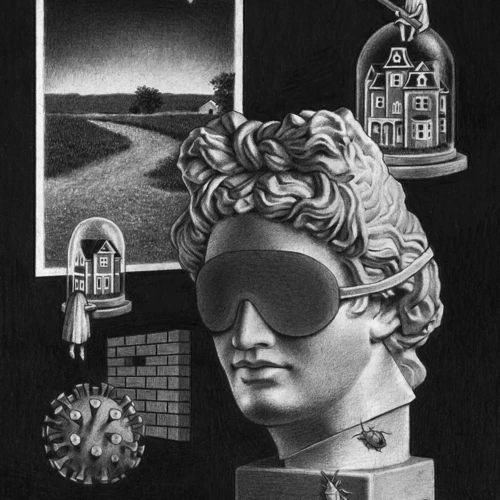
Case studies and real-life experiences provide compelling evidence of the potential link between dreams and premonitions. Throughout history, there have been numerous famous dreams that predicted the future, leaving a lasting impact on both individuals and society as a whole. From Abraham Lincoln’s dream of his own assassination to Mark Twain’s dream of his brother’s demise, these accounts spark intrigue and raise questions about the nature of these prophetic dreams. Furthermore, personal accounts of dream premonitions offer a glimpse into the extraordinary experiences of individuals who have witnessed events in their dreams that later unfolded in reality. These firsthand testimonies, ranging from premonitions of accidents to foreknowledge of life-changing decisions, further fuel the debate surrounding the power and significance of dreams. Exploring these case studies and real-life experiences invites us to contemplate the profound ways in which dreams can intersect with our waking lives, challenging our understanding of time, consciousness, and the boundaries of human perception.
1. Famous Dreams that Predicted the Future
Some dreams have astounded and bewildered individuals throughout history with their uncanny ability to predict future events. Let’s delve into a collection of famous dreams that predicted the future, showcasing the remarkable instances where dreams seemed to transcend the boundaries of time and space.
1. Abraham Lincoln’s Dream: In 1865, shortly before his assassination, President Abraham Lincoln reportedly dreamt of his own funeral. In the dream, he saw mourners grieving for him in the East Room of the White House. Tragically, his dream came true just days later when he was assassinated, and his body laid in state in the same room.
2. Mark Twain’s Dream of His Brother’s Death: The renowned American author, Mark Twain, had a vivid dream in which he saw his brother lying in a coffin. Disturbed by this vision, he immediately wrote to his brother and warned him of the dream. Unfortunately, the dream proved prophetic, as his brother passed away shortly after receiving the letter.
3. The Sinking of the Titanic: There are numerous accounts of individuals who claimed to have dreamt of the sinking of the Titanic before the tragic event occurred in 1912. These dreams included details such as the ship hitting an iceberg and sinking into the icy waters, leading people to believe in the existence of a powerful collective premonition.
4. 9/11 Premonitions: In the days leading up to the September 11, 2001 terrorist attacks, several people reported having dreams that eerily mirrored the events that would unfold. These dreams depicted scenes of airplanes crashing into buildings, smoke engulfing the skyline, and the overwhelming sense of fear and devastation.
These examples serve as testaments to the inexplicable nature of dreams and their potential ability to offer glimpses into the future. While skepticism may persist, the significance of these prophetic dreams cannot be easily dismissed or explained away. They continue to fuel the ongoing curiosity and fascination surrounding the elusive link between dreams and premonitions.
2. Personal Accounts of Dream Premonitions
Personal accounts of dream premonitions provide intriguing anecdotes that suggest a possible connection between dreams and future events. These stories offer a glimpse into the experiences of individuals who claim to have had vivid dreams that accurately predicted specific occurrences. One such account involves a woman named Sarah, who dreamt that she was in a car accident and saw a specific license plate number. Several weeks later, while driving to work, Sarah witnessed a car crash, and the license plate number matched the one from her dream. This eerie coincidence left her questioning the nature of dreams and their ability to foretell future events. Another notable example is the case of John, who dreamt of a family member falling ill and being rushed to the hospital. A few days later, his dream turned into a reality when his sister suddenly became severely ill and required immediate medical attention. While these accounts cannot be scientifically proven, they raise intriguing questions about the potential foresight of dreams. It is essential to note that personal accounts are subjective in nature, and individual interpretation and perception play a significant role in assigning meaning to these premonitory dreams. However, they contribute to the broader discussion surrounding the link between dreams and future events, sparking curiosity and encouraging further exploration.
Theories and Explanations
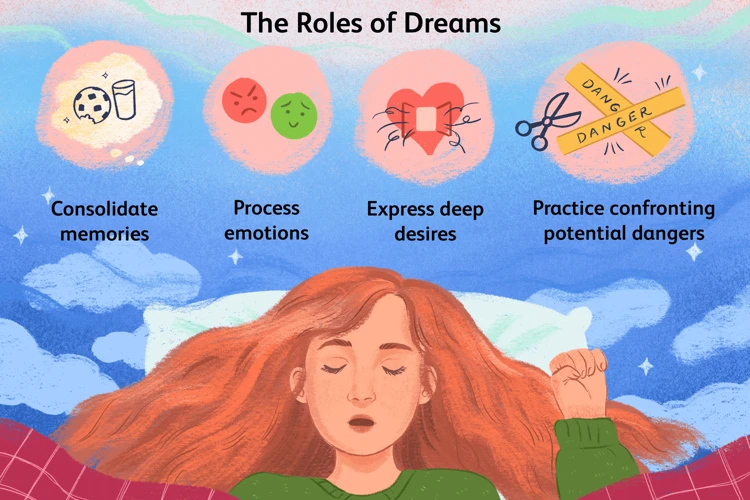
Attempting to explain the perplexing connection between dreams and premonitions has given rise to various theories and explanations. While the true nature of this phenomenon remains elusive, several intriguing possibilities have been proposed. One theory suggests that unconscious perception plays a role, allowing the mind to unconsciously gather information about future events and incorporate them into dreams. Another theory delves into the realm of time-slips and parallel universes, proposing that dreams may provide glimpses into alternate timelines or dimensions. For those who believe in the divine, divine intervention and higher consciousness offer an explanation, suggesting that dreams and premonitions may be messages from a higher power or the intuitive wisdom residing within us. These theories provide captivating insights into the enigmatic nature of dreams and premonitions, igniting our curiosity and prompting a deeper exploration into the realms beyond our waking consciousness.
1. Unconscious Perception
Unconscious perception is a fascinating concept that sheds light on the potential connection between dreams and future events. It suggests that our minds possess a remarkable ability to subconsciously process information from our surroundings, even when we are not consciously aware of it. This idea implies that our dreams can serve as a conduit for this hidden knowledge, allowing us to tap into a deeper understanding of the world around us. Research has shown that the unconscious mind can pick up on subtle cues and patterns that may elude our conscious awareness. These cues can include sensory information such as sounds, smells, and even minute changes in our environment. As a result, dreams may incorporate fragments of this unconsciously perceived information, manifesting as symbols or scenarios that hint at future events. This theory provides a plausible explanation for the occurrence of premonitory dreams, suggesting that our unconscious mind may be piecing together fragments of information and projecting them into our dreamscape. However, while unconscious perception offers intriguing possibilities, it is important to note that further empirical research is needed to fully understand and validate this phenomenon. The complexities of the human mind continue to baffle scientists, and the true extent of our unconscious abilities remains a captivating area of exploration.
2. Time-Slips and Parallel Universes
The concept of time-slips and parallel universes adds an intriguing dimension to the exploration of dreams and premonitions. Time-slips refer to instances where individuals claim to have experienced a sudden displacement in time, finding themselves momentarily transported to a different era. These experiences, often described as vivid and immersive, blur the boundaries between past, present, and future. While skeptics argue that time-slips can be attributed to false memories or hallucinations, proponents suggest that they could be glimpses into alternate timelines or parallel dimensions. Parallel universes, also known as the multiverse theory, postulate the existence of multiple co-existing realities, each with its own set of possibilities and outcomes. According to this theory, our dreams might provide us with glimpses of events and experiences unfolding in these parallel universes, allowing us to tap into a web of interconnected realities. While the idea of time-slips and parallel universes may remain speculative, they offer a captivating perspective on the potential complexities of dreams and their relationship to the fabric of time and space. Exploring these concepts invites us to ponder the vastness of the cosmos and the intricacies of our own consciousness.
3. Divine Intervention and Higher Consciousness
Divine Intervention and Higher Consciousness
The phenomenon of dream premonitions has often been attributed to divine intervention and higher consciousness. Some believe that these prophetic dreams are a result of divine communication or intervention from a higher power. It is believed that during sleep, the mind becomes more receptive to messages from the spiritual realm. This opens up the possibility of receiving guidance, warnings, or knowledge about future events through dreams.
Throughout history, there have been numerous accounts of individuals who claim to have received messages or visions in their dreams that have proven to be accurate in predicting future events. These experiences often lead people to question the boundaries of what is considered possible and to contemplate the existence of a higher consciousness guiding our lives.
From a spiritual perspective, dreams are seen as a pathway to tapping into universal knowledge and connecting with our higher selves or divine entities. They are viewed as a medium through which spiritual guidance and wisdom can be imparted to individuals. Dream symbols and messages are interpreted as signs from the divine, offering insight and direction.
In certain religious traditions and belief systems, dreams are considered sacred and hold significant importance. They are seen as a path to transcending the limitations of the physical world and accessing a higher realm of consciousness. Dream premonitions may be seen as a gift bestowed upon select individuals to provide them with glimpses into the future or to deliver important messages.
While the concept of divine intervention and higher consciousness in the context of dream premonitions is largely based on spiritual and mystical beliefs, it cannot be scientifically proven or disproven. It remains a topic of debate and personal interpretation, inviting individuals to explore the depths of their own spiritual beliefs and experiences.
The idea of divine intervention and higher consciousness offers a profound perspective on the phenomenon of dream premonitions. It posits the notion that dreams can transcend the realm of the ordinary and serve as a conduit for receiving messages and guidance from a higher power. Whether one embraces these beliefs or approaches dream premonitions from a more skeptical standpoint, the allure and mystery of the connection between dreams and higher consciousness continue to captivate our curiosity and imagination.
Scientific Studies and Research
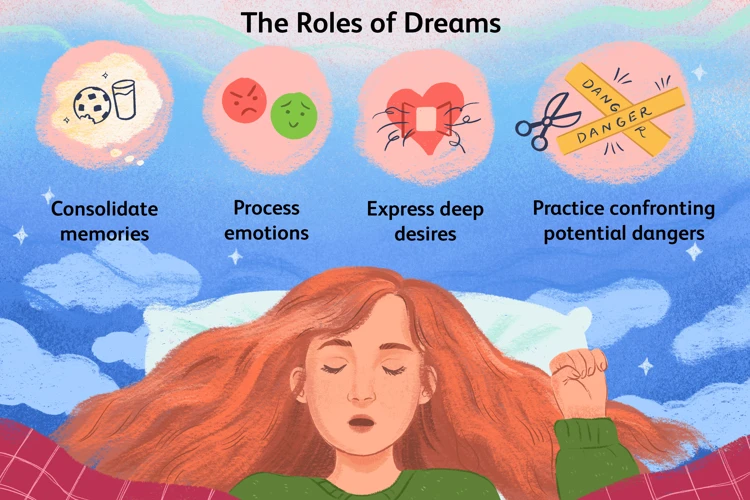
Scientific studies and research play a crucial role in unraveling the mysteries surrounding dreams and premonitions. Researchers have conducted numerous studies to explore the accuracy and validity of dream premonitions, using various methodologies and approaches. One prominent area of study focuses on dream premonition accuracy, where researchers analyze the instances where dreams have successfully predicted future events. These studies provide empirical evidence that dreams might indeed carry glimpses of the future. Another fascinating aspect is the psychological and neurological perspectives on dreams and premonitions, where scientists delve into the intricate workings of the brain during dreaming states and attempt to understand the mechanisms behind these phenomena. Through advanced imaging techniques and psychological experiments, researchers aim to uncover the underlying cognitive processes and neural activity associated with premonitions. The results of these scientific endeavors contribute to the ongoing discourse surrounding dreams, shedding light on their potential importance and challenging conventional explanations.
1. Studies on Dream Premonition Accuracy
Studies on dream premonition accuracy have been a subject of great interest and contention among researchers. While some argue that dreams possess the ability to foresee future events, others remain skeptical, attributing such occurrences to mere coincidence. To shed light on this phenomenon, numerous scientific studies have been conducted to assess the validity and accuracy of dream premonitions.
One study conducted by renowned psychologist Dr. Stanley Krippner examined a group of individuals who claimed to have experienced premonitory dreams. The study involved documenting participants’ dreams and comparing them to real-life events that transpired in the following weeks or months. Astonishingly, the results revealed a higher level of accuracy in dream predictions than what could be attributed to chance alone. The findings sparked curiosity and inspired further exploration into the potential predictive power of dreams.
In another notable study, researchers used brain imaging techniques to analyze the neural activity of participants during sleep. The aim was to investigate whether certain brain patterns could indicate the occurrence of future events in dreams. The study found intriguing correlations between specific neural activity patterns during REM sleep and the accuracy of subsequent dream premonitions. While the exact mechanisms behind this phenomenon remain a mystery, these studies provide compelling evidence that dreams may indeed hold glimpses of the future.
However, it is important to note that the scientific community remains divided on the interpretation and implications of these findings. Skeptics argue that the apparent accuracy of dream premonitions can be attributed to factors such as selective recall, cognitive biases, and the vast amount of dreams individuals experience throughout their lifetime.
Studies on dream premonition accuracy are ongoing, aiming to unravel the complexities surrounding this fascinating phenomenon. While some scientific evidence suggests a possible link between dreams and future events, further research is required to establish concrete conclusions. The exploration into dream premonitions continues to challenge our understanding of consciousness and the potential abilities of the human mind.
2. Psychological and Neurological Perspectives
From a psychological perspective, dreams have long been a subject of interest and study. Psychologists believe that dreams provide valuable insights into our unconscious mind, allowing us to access repressed thoughts, emotions, and desires. Dreams can serve as a form of therapy, helping individuals process traumatic experiences or explore unresolved conflicts. Through dream analysis, psychologists can uncover hidden meanings and symbols, helping their patients gain a deeper understanding of themselves.
Neurologically, dreams are believed to occur during the Rapid Eye Movement (REM) stage of sleep. This stage is characterized by heightened brain activity and vivid dreaming. Studies using neuroimaging techniques have shown that specific regions of the brain, such as the prefrontal cortex and limbic system, are involved in the generation and experience of dreams. The prefrontal cortex, responsible for decision-making and emotion regulation, may play a role in shaping the content and emotions within dreams. Additionally, the limbic system, which is associated with memory and emotion, influences the emotional intensity of dreams.
Research suggests that dreaming is crucial for memory consolidation and learning. During sleep, the brain processes and stores information obtained throughout the day, leading to enhanced memory recall and cognitive performance. Dreams may serve as a means for the brain to sort and organize newly acquired knowledge, facilitating the encoding and integration of information.
Both psychological and neurological perspectives contribute to our understanding of the significance and function of dreams. By examining the intricate interplay between the mind and the brain, researchers aim to unravel the mechanisms that underlie the dreaming experience and its impact on our mental and emotional well-being.
Enhancing Dream Awareness

Enhancing dream awareness is an invaluable skill that can enrich our understanding of the subconscious realm and empower us to harness the potential of our dreams. Keeping a dream journal is a practical and effective method to enhance dream recall. By recording our dreams immediately upon waking, we can capture intricate details, emotions, and symbols that may hold deeper meanings. Another technique is cultivating the practice of lucid dreaming, where one becomes consciously aware within a dream and can actively influence the dream’s narrative. Lucid dreaming allows individuals to explore their dreams with intention, unlock creativity, and gain valuable insights. Various methods, such as reality checks throughout the day or setting intentions before sleep, can aid in developing lucid dreaming skills. Additionally, incorporating relaxation exercises, meditation, and herbal supplements like valerian root or chamomile tea can promote overall relaxation and encourage vivid dreaming. With heightened dream awareness, we can embark on a transformative journey within ourselves, unlocking the profound wisdom and potential that lies within the realm of dreams.
1. Keeping a Dream Journal
Keeping a Dream Journal is a powerful tool for unlocking the secrets within our dreams and harnessing their potential. By recording our dreams upon waking, we create a tangible record that allows us to revisit and analyze their content in detail. Here are some benefits and practical tips for maintaining a Dream Journal:
- Awareness and recall: Keeping a Dream Journal helps to enhance our dream recall. By making a habit of immediately jotting down any fragments, images, or emotions we remember from our dreams, we train our minds to pay closer attention to the dream world. This increased awareness can lead to a greater ability to recall dreams in their entirety.
- Pattern recognition: Over time, a Dream Journal enables us to identify recurring themes, symbols, or patterns in our dreams. By regularly reviewing our journal entries, we can start to discern connections and meanings that may otherwise go unnoticed. This process of pattern recognition can deepen our understanding of our own subconscious mind.
- Symbolism and interpretation: A Dream Journal can serve as a valuable reference guide for interpreting the symbolism in our dreams. By noting down symbols, objects, people, or places that appear in our dreams, we can gradually decipher their personal significance. This practice allows us to tap into the rich symbolism of our unconscious and gain valuable insights into our own psyche.
- Emotional exploration: Dreams often evoke powerful emotions, and a Dream Journal offers a space to explore and process these emotions. By reflecting on our emotional experiences within dreams, we can gain a deeper understanding of our emotional landscape and potentially uncover unresolved issues that require attention.
- Tracking progress: By regularly documenting our dreams, we can track our progress in lucid dreaming or other dream-related practices. We can record any techniques or exercises we have attempted and evaluate their impact on the content and clarity of our dreams.
In summary, keeping a Dream Journal provides an avenue for self-reflection, self-discovery, and personal growth. It enhances our dream recall, helps us recognize patterns and symbols, assists in dream interpretation, facilitates emotional exploration, and allows us to track our progress in various dream-related practices. By dedicating time and attention to our dreams through journaling, we unlock a world of insights and revelations that can greatly enrich our waking lives.
2. Lucid Dreaming Techniques
Lucid dreaming is a remarkable phenomenon where the dreamer becomes aware that they are dreaming while still immersed in the dream world. This heightened state of consciousness allows individuals to actively participate in and manipulate their dreams, opening the door to boundless possibilities and extraordinary experiences. There are several techniques that one can practice to increase the likelihood of having lucid dreams:
1. Reality checks: Performing reality checks throughout the day helps to develop the habit of questioning reality and increases the chances of doing the same within a dream. Reality checks may include actions such as looking at your hands, trying to push your finger through your palm, or attempting to read a sentence twice to see if the words change.
2. Keeping a dream journal: Maintaining a dream journal is a vital tool for lucid dreamers. Recording dreams upon waking helps to enhance dream recall and identify recurring themes or patterns. By analyzing these patterns, dreamers can develop a better understanding of their dream world, consequently increasing their chances of achieving lucidity.
3. Meditation and mindfulness: Practicing meditation and mindfulness in waking life can carry over into the dream state. Cultivating greater awareness and focus during the day can translate into heightened awareness during dreams, making lucid dreaming more attainable.
4. Mnemonic induction of lucid dreams (MILD): This technique involves setting an intention to become lucid while falling asleep. Before bed, repeat a mantra or an affirmation such as “I will have a lucid dream tonight” while visualizing yourself becoming aware within a dream. This programming of the subconscious mind increases the likelihood of achieving lucidity.
5. Wake-induced lucid dreaming (WILD): WILD involves maintaining consciousness while transitioning from being awake into the dream state. This technique can be challenging and requires deep relaxation, concentration, and focus. As you lay down to sleep, keep your mind awake while your body falls asleep, allowing yourself to seamlessly enter a lucid dream.
Remember, achieving lucid dreaming can take time and practice. It is essential to be patient and persistent in these techniques. As you develop your skills and become more proficient at recognizing and controlling your dreams, the vast landscape of lucid dreaming will unfold, offering an exhilarating playground for exploration and self-discovery.
Interpreting and Acting Upon Dream Premonitions

Interpreting and acting upon dream premonitions requires a delicate balance between intuition, symbolism, and rationality. When faced with a dream that seems prophetic or carries a sense of foreboding, it is crucial to approach it with an open mind and a discerning eye. Identifying significance and symbolism is key to unraveling the message hidden within the dream. Paying attention to recurring themes, vivid imagery, and emotional undertones can provide valuable clues. Consulting dream dictionaries or seeking guidance from experienced dream analysts can offer additional insights. Once the dream’s meaning is deciphered, it’s essential to take precautions and make decisions based on the information received. This could involve altering one’s behavior, seeking guidance from trusted individuals, or adjusting plans accordingly. However, it is important to exercise caution and not solely rely on dream premonitions as the sole basis for major life decisions. Incorporating dream premonitions into one’s decision-making process can provide an additional perspective, but it should be balanced with critical thinking and consideration of other factors. By carefully navigating the realm of dream premonitions, individuals can harness the wisdom of their subconscious mind while maintaining a rational approach to life’s choices.
1. Identifying Significance and Symbolism
When it comes to understanding dreams and their potential significance, one crucial aspect is identifying the significance and symbolism embedded within them. Dreams often communicate through symbolism, utilizing images, objects, and scenarios that may hold deeper meanings. To unlock these hidden messages, it is essential to analyze the symbols present in the dream and interpret their significance. This can be done by keeping a dream journal to record and analyze recurring symbols or themes that appear in different dreams. Exploring personal associations and cultural meanings attached to these symbols can provide further insights. Additionally, paying attention to emotions experienced within the dream and upon waking can shed light on the underlying significance. Dreams can act as mirrors of the subconscious mind, reflecting inner conflicts, desires, or unresolved issues. By identifying and unraveling the symbolism within a dream, individuals can gain valuable self-awareness and a deeper understanding of their own thoughts and emotions. Remember, interpretation can vary based on personal experiences and cultural backgrounds, so it is important to approach dream symbolism with an open mind while embracing individual perspectives.
2. Taking Precautions and Making Decisions
When it comes to the realm of dream premonitions, taking precautions and making decisions based on them can be a complex and challenging task. Despite the fascinating nature of these glimpses into the future, it is crucial to approach them with a rational and balanced mindset. Taking precautions involves carefully considering the information presented in the dream premonition and evaluating its potential impact on our lives. This can include seeking additional information or advice to validate and understand the significance of the dream. It is important to remember that dream premonitions are not infallible predictions but rather insights that may offer guidance.
Making decisions based on dream premonitions requires an objective evaluation of the information presented. This involves considering the potential risks and benefits associated with acting upon the prediction. It is crucial to avoid impulsive actions solely based on a dream and instead weigh the practicality and feasibility of any course of action. Seeking support from trusted friends, family, or professionals can provide valuable perspectives and guidance in decision-making processes.
To aid in the decision-making process, individuals can consider keeping a dream journal to track and analyze patterns in their dreams over time. This can help identify recurring symbols, themes, or emotions that may provide additional insight into the meaning and significance of dream premonitions.
However, it is also essential to exercise caution and avoid becoming overly reliant on dream premonitions. Dreams are subjective experiences and can be influenced by various factors such as personal beliefs, fears, and desires. It is advisable to seek a balanced approach that combines the interpretation of dreams with critical thinking and an awareness of the limitations of relying solely on dreams for decision-making.
While dream premonitions can offer valuable insights, it is important to approach them with caution and skepticism. Taking precautions and making decisions based on these premonitions requires a careful evaluation of the information and seeking additional resources to validate and analyze the potential actions. By combining the wisdom derived from dream premonitions with rational decision-making processes, individuals can navigate the complexities of acting upon these glimpses into the future.
The Ethical and Moral Implications

As we delve deeper into the realm of dream premonitions, it becomes essential to consider the ethical and moral implications surrounding their interpretation and sharing. The ability to glimpse the future through dreams carries immense power and responsibility. Knowledge of potential events can create dilemmas regarding free will, as individuals may grapple with the question of whether they should intervene or let fate take its course. The decision to share dream premonitions is fraught with ethical considerations. While some may argue that sharing such information can potentially avert tragedy or offer guidance to others, others believe that it may disrupt natural processes or cause unnecessary anxiety. Striking a balance between respecting individual autonomy and acting for the greater good is a delicate ethical tightrope that one must navigate. Ultimately, as we explore the depths of dream premonitions, we must weigh the consequences of our actions and make choices that align with our moral compass.
1. Influence on Free Will
The potential influence of dream premonitions on free will raises profound philosophical and ethical questions. If dreams can provide glimpses into the future, do we have the power to change the course of events, or are we merely bound by a predetermined fate? This debate has sparked discourse among scholars and thinkers throughout history.
One perspective argues that dream premonitions are simply a product of our subconscious mind, reflecting our deeply ingrained desires, fears, and beliefs. According to this view, while dreams may offer insights into potential future events, they do not necessarily dictate our actions. Instead, it is our conscious choices and decisions that shape the outcomes.
On the contrary, another viewpoint suggests that dream premonitions are a form of guidance or forewarning from a higher power or collective consciousness. These individuals believe that dreams serve as a navigation system, helping us make choices that align with a predetermined destiny or universal plan. In this context, free will may still exist, but it operates within the confines of a greater cosmic design.
The concept of dream-induced predestination confronts the notion of human autonomy and raises questions about the limits of our control over our own lives. Does the knowledge gained from premonitory dreams strip us of our ability to make independent decisions? Or can it empower us to make more informed choices and shape our own future? The answers to these questions remain elusive, as the nature of dreams and their influence on free will continues to be a subject of speculation and contemplation.
2. Ethical Considerations in Sharing Dream Premonitions
Sharing dream premonitions raises important ethical considerations that should be carefully examined. When individuals have a dream that seemingly predicts a future event, they may feel compelled to share this information with others. However, ethical considerations must be taken into account before disclosing such information. One aspect to consider is the potential impact on the recipient of the premonition. Will sharing the dream cause unnecessary worry, fear, or anxiety? It is important to weigh the potential benefits against the potential harm. Additionally, the credibility of the dreamer must be scrutinized. Are they known for fabricating stories or exaggerating their experiences? Ensuring the credibility of the dreamer is essential to prevent unnecessary panic or misinformation. Respecting the privacy and autonomy of the individuals involved is crucial. Some individuals may not wish to know about a potential future event, or they may prefer to deal with it in their own way. Consent and sensitivity are paramount in these situations. Lastly, consideration should be given to the social implications of sharing dream premonitions. Is this information beneficial to society as a whole or is it potentially disruptive? Ethical dilemmas arise when there is a potential for exploitation, manipulation, or the spread of false information. Before sharing a dream premonition, careful thought should be given to the potential consequences and the ethical responsibilities of the dreamer.
Paranormal and Supernatural Connections
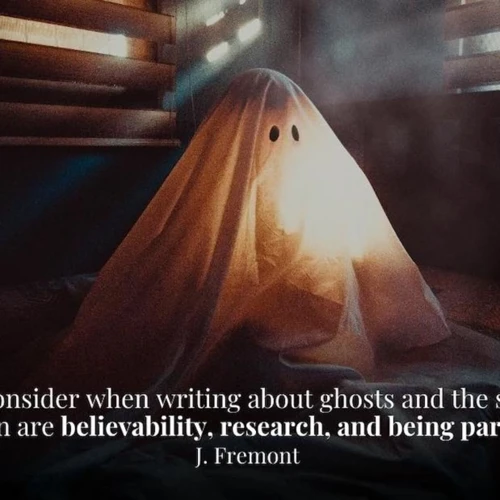
The connection between dreams and the paranormal or supernatural has long fascinated humanity, blurring the line between the physical and spiritual realms. Dream premonitions often seem to defy logical explanation, leading many to ponder the influence of unseen forces. Some individuals have reported dream premonitions that seemingly foretell ghostly encounters, where vivid dreams mirror encounters with apparitions or spirits. These eerie experiences raise questions about the nature of dreams and their potential ability to tap into dimensions beyond our physical reality. Additionally, dreams have been linked to psychic abilities, with reports of individuals receiving messages or visions in their dreams that seem to transcend normal sensory perception. While skepticism exists, these paranormal and supernatural connections to dreams continue to intrigue and challenge our understanding of the world around us, unveiling the enigmatic nature of the human mind and its manifestations during the dream state.
1. Dream Premonitions and Ghostly Encounters
Dream premonitions and ghostly encounters are a fascinating aspect of the dream realm that blur the lines between the physical and spiritual worlds. People have reported having dreams that seem to offer glimpses of future events, sometimes including encounters with departed loved ones or other supernatural entities. These dream premonitions often leave a lasting impact on individuals, questioning the boundaries of reality and the afterlife. Some individuals claim to have dreamed of tragic events or accidents before they occurred, experiencing a sense of déjà vu when their dreams unfold in real life. These eerie premonitions can be unsettling, but they also provide a sense of connection and reassurance that there is more to existence than what meets the eye. In some cases, dreamers have even reported encounters with deceased relatives or spirits during their dreams, providing messages, guidance, or even warnings. These ghostly encounters in dreams can be vivid and emotionally charged, leaving individuals with a deep belief in the supernatural and the existence of an afterlife. Whether they are a product of the subconscious mind or a glimpse into another dimension, the phenomenon of dream premonitions and ghostly encounters continues to intrigue and mystify those who experience them.
2. Dreams and Psychic Abilities
Some individuals believe that dreams and psychic abilities are intrinsically linked, with dreams acting as a conduit for extrasensory perception. Psychic abilities, such as clairvoyance, telepathy, and precognition, are believed to provide individuals with the ability to perceive information beyond the scope of normal sensory perception. In the context of dreams, these psychic abilities can manifest themselves in various ways.
One phenomenon related to dreams and psychic abilities is known as precognitive dreaming. This occurs when individuals have dreams that accurately predict future events. These dreams can range from mundane occurrences to significant global events. Some argue that these dreams are more than mere coincidences, suggesting that they tap into a deeper understanding of the fabric of time and space.
Another aspect of dreams and psychic abilities is the concept of telepathic dreaming. Telepathy refers to the communication of thoughts and information between individuals without the use of traditional sensory channels. In the dream realm, this can manifest as shared dreams or the ability to receive messages and information from others through dreams.
It is important to note that while many individuals report experiences that seem to indicate a connection between dreams and psychic abilities, the scientific community remains divided on the validity of such claims. Some attribute these experiences to chance or the power of suggestion, while others argue that there may be underlying mechanisms yet to be fully understood.
As with other aspects of dreams and premonitions, the exploration of dreams and psychic abilities opens up a plethora of questions and possibilities. Whether these experiences are rooted in a genuine connection to the supernatural or are simply manifestations of the complex workings of the human mind, they continue to intrigue and captivate our imagination.
Debunking and Skepticism
While dreams and premonitions have captivated the human imagination for centuries, there are those who approach these phenomena with skepticism and a desire for logical explanations. The scientific skeptic’s perspective seeks to question the validity of dream premonitions, challenging the notion that dreams can accurately predict future events. Skeptics argue that coincidences and selective memory may be responsible for the perceived accuracy of premonitory dreams. They suggest that our brains are highly adept at finding patterns and connections where none exist, leading us to interpret dreams as prophetic when they are merely a product of chance. Additionally, logical explanations for dream coincidences include the vast amount of dreams we experience each night, increasing the likelihood that some may align with future events by chance. Though skepticism challenges the paranormal nature of dreams and premonitions, it is a necessary aspect of scientific inquiry, encouraging critical thinking and the exploration of alternative explanations.
1. The Scientific Skeptic’s Perspective
The Scientific Skeptic’s Perspective brings a rational and analytical lens to the discussion surrounding dreams and premonitions. Skeptics argue that dreams are merely a result of brain activity during sleep, with no inherent predictive abilities. From a scientific standpoint, dreams are seen as a byproduct of the brain’s processing of information and memories, incorporating random fragments and creating narratives that may or may not have significance. They posit that any perceived connections between dreams and future events are merely coincidences or the result of selective memory bias, where people recall the few instances that align while ignoring the multitude that do not. Skeptics also point out the lack of empirical evidence supporting the existence of premonitions and emphasize the need for controlled experiments to validate any claims. They argue that bringing the topic into the realm of science allows for critical analysis and the exploration of alternative explanations. While this perspective challenges the mystical aspects of dreams and premonitions, it plays an important role in fostering skepticism, balanced inquiry, and the pursuit of evidence-based explanations.
2. Logical Explanations for Dream Coincidences
While dreams and premonitions may seem mystical and inexplicable, skeptics offer logical explanations for the phenomenon of dream coincidences. These explanations seek to attribute the apparent predictive nature of dreams to purely rational and scientific factors:
1. Confirmation Bias: One logical explanation suggests that humans tend to remember and recall instances where their dreams align with future events while disregarding the countless dreams that do not have any correlation. This selective memory can create the illusion of prophetic dreams, as our brains focus on instances that confirm our belief in their predictive power.
2. Coincidences and Random Chance: Dreams are inherently random and elusive. With the vast array of experiences and possibilities in our waking lives, it is statistically probable that occasionally, dreams will align with future events purely by chance. These coincidences, while intriguing, do not necessarily indicate a supernatural connection.
3. Retrospective Interpretation: One might argue that dreams can be interpreted in a way that aligns with future events after the fact. This retrospective interpretation allows individuals to connect dots and find meaning where there may not have been any initially, creating a false sense of prophetic dreams.
4. Subconscious Sensitivity: Our subconscious mind is incredibly perceptive, picking up subtle cues and patterns from our surroundings that our conscious mind may overlook. It is possible that our dreams, influenced by our subconscious perceptions, reflect these hidden signs and information, giving the illusion of foresight.
5. Mere Coincidences: Finally, dreams that seemingly predict future events could merely be coincidences. As humans, we experience an array of dreams each night, and some may inevitably align with real-life happenings purely due to chance, with no underlying predictive power.
While these logical explanations present a skeptical perspective, they provide alternative interpretations that challenge the notion of dreams as premonitions. It is important to consider these rational views when pondering the mysteries of dreams and the link between dreams and future events, allowing for a balanced exploration of the subject.
Conclusion
In conclusion, the link between dreams and premonitions is a complex and intriguing phenomenon that continues to captivate minds around the world. While the scientific community remains divided on the validity and explanations behind dream premonitions, personal accounts and historical anecdotes suggest that there may indeed be a connection between our dreams and future events. Whether through unconscious perception, glimpses into alternate realities, or higher consciousness, dreams have the potential to offer insights and warnings that can shape our lives. It is important to approach dream premonitions with an open mind, recognizing the role of symbolism and interpretation in deciphering their meanings. While some may dismiss them as mere coincidence or wishful thinking, others believe in their profound significance and utilize them as valuable guidance in decision-making. Ultimately, the exploration of dreams and premonitions invites us to delve into the depths of our subconscious and expand our understanding of the mysteries that lie beyond our waking reality.
Frequently Asked Questions
1. What is the purpose of dreams?
The purpose of dreams is still a subject of debate among psychologists and scientists. Some theorize that dreams serve as a way for the brain to process emotions, memories, and experiences, while others believe they may have a deeper meaning and connection to the subconscious mind.
2. Can dreams predict the future?
While some individuals claim to have had dreams that accurately predicted future events, there is no scientific consensus on the ability of dreams to foretell the future. It is important to approach such experiences with skepticism and consider alternative explanations.
3. What are lucid dreams?
Lucid dreams occur when a person becomes aware that they are dreaming while still in the dream state. This awareness allows individuals to have some level of control over the dream narrative, leading to a unique and immersive experience.
4. Are all dreams symbolic?
Not all dreams are necessarily symbolic. Some dreams may reflect everyday occurrences and experiences, while others may carry deeper symbolic meanings that require interpretation and exploration.
5. Can dreams help with problem-solving?
Some researchers suggest that dreams can aid in problem-solving by providing a different perspective or allowing the mind to explore potential solutions without the limitations of waking reality. However, more research is needed to fully understand the extent of this phenomenon.
6. How can dream journals be helpful?
Keeping a dream journal can be helpful in enhancing dream recall and identifying recurring patterns or symbols in dreams. It allows individuals to reflect on their dreams and gain insights into their subconscious mind.
7. What is the role of emotions in dreams?
Emotions play a significant role in dreams, as they can intensify the dream experience and provide valuable clues about one’s emotional state. Dreams can evoke a range of emotions, from joy and contentment to fear and anxiety.
8. Can dreams be influenced by external factors?
External factors such as noise, temperature, and sleeping environment can influence the content and quality of dreams. These factors can manifest in dreams as symbols or themes related to the individual’s surroundings.
9. Are there any cultural or gender differences in dream interpretations?
Yes, dream interpretations can vary across cultures and individuals. Cultural beliefs, personal experiences, and societal norms can shape the way dreams are understood and interpreted. Similarly, gender can also influence dream content and interpretations.
10. How can one differentiate between ordinary dreams and premonitory dreams?
Differentiating between ordinary dreams and premonitory dreams can be challenging. Premonitory dreams often involve vivid and detailed imagery of future events, and individuals may experience a heightened sense of knowing or déjà vu upon the occurrence of the predicted event.








